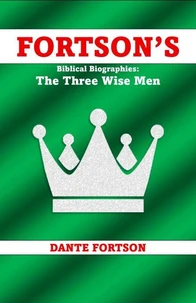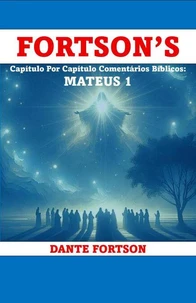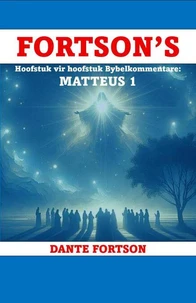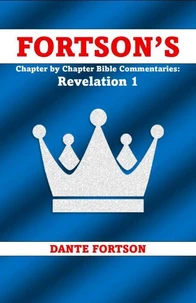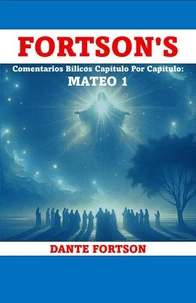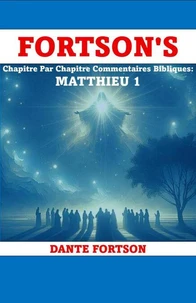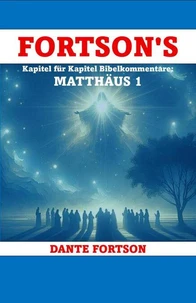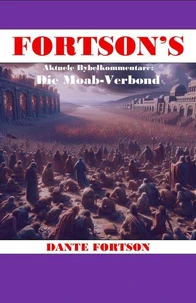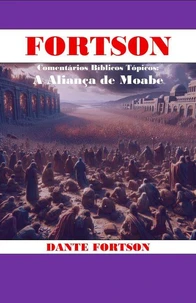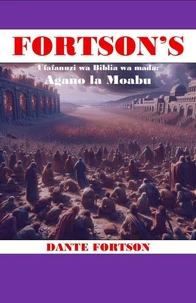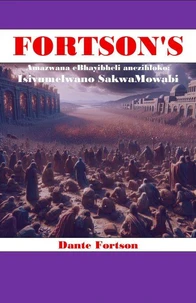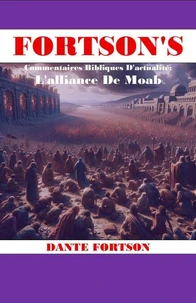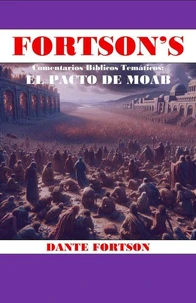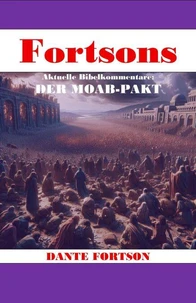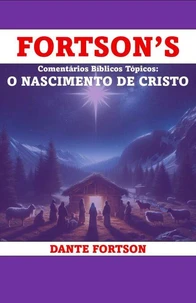Nouveauté
Fortson's Chapter by Chapter Bible Commentaries: Deuteronomy 29. Fortson’s Chapter by Chapter Bible Commentaries
Par :Formats :
Disponible dans votre compte client Decitre ou Furet du Nord dès validation de votre commande. Le format ePub est :
- Compatible avec une lecture sur My Vivlio (smartphone, tablette, ordinateur)
- Compatible avec une lecture sur liseuses Vivlio
- Pour les liseuses autres que Vivlio, vous devez utiliser le logiciel Adobe Digital Edition. Non compatible avec la lecture sur les liseuses Kindle, Remarkable et Sony
 , qui est-ce ?
, qui est-ce ?Notre partenaire de plateforme de lecture numérique où vous retrouverez l'ensemble de vos ebooks gratuitement
Pour en savoir plus sur nos ebooks, consultez notre aide en ligne ici
- FormatePub
- ISBN8232021337
- EAN9798232021337
- Date de parution03/09/2025
- Protection num.pas de protection
- Infos supplémentairesepub
- ÉditeurHamza elmir
Résumé
IntroductionThe Moab Covenant can be found in Deuteronomy 28 and many believe it to be one of the most important covenants in the Bible. It lays out a series of future blessings and curses that would play a significant role in Israel's history. Chapters 29 - 32 build upon the terms and conditions found in Chapter 28 and contain references to the timeframe when the curses will take place in the future.
These chapters were so important, that God commanded them to be read in front of the congregation every seven years during the Feast of Tabernacles, as a continual reminder. When Israel began straying from God, Solomon, Daniel, Jeremiah, and even Christ referred to the blessings and curses foretold in Deuteronomy 28 - 32, as a reminder for the nation to turn from their evil ways and back to God. Date: c.
1406 BCWriter(s): Moses, possibly Joshua, or a scribe(s).*Some scholars believe that the five books of Moses may have had up to 4 authors, known as J (Jahwist), E (Elohist), P (Priestly), and D (Deuteronomist). This belief is known as the Documentary Hypothesis. CompositionDeuteronomy 28 is broken into two parts. Verses 1 - 14 deal with the blessings that God promised to bestow upon Israel if they obeyed and kept his commandments.
Verses 15 - 68 deal with the curses that God would place upon Israel if they failed to keep his commandments. ViewpointsThere are three major opposing viewpoints on the Moab Covenant.1. Major: Deuteronomy 28 is not Bible prophecy for a future date and has already been fulfilled in the past.2. Major: Deuteronomy 28 is Bible prophecy for a future date and the curses can be used as a sign to identify the true nation of Israel.3. Major: Deuteronomy 28 is completely allegorical and has a spiritual meaning rather than a literal interpretation.
ImportanceUnderstanding the Moab Covenant is important when it comes to understanding and interpreting Bible prophecy as a whole. When the disciples came to Christ and asked him about the signs of his coming (Matthew 24, Mark 13, and Luke 21), he answered them by referencing various prophecies found throughout the Old Testament. Some of the signs he mentioned are found among the curses written in Deuteronomy 28:15-68.
In Deuteronomy 31:29, Moses expresses to the children of Israel that these events will happen to them in the "Latter Days"; a phrase that refers to the time at which the Messiah will return and reign on earth. Understanding the context of Deuteronomy 28 also helps us understand why Christ would quote from it when answering his disciples about his return.
These chapters were so important, that God commanded them to be read in front of the congregation every seven years during the Feast of Tabernacles, as a continual reminder. When Israel began straying from God, Solomon, Daniel, Jeremiah, and even Christ referred to the blessings and curses foretold in Deuteronomy 28 - 32, as a reminder for the nation to turn from their evil ways and back to God. Date: c.
1406 BCWriter(s): Moses, possibly Joshua, or a scribe(s).*Some scholars believe that the five books of Moses may have had up to 4 authors, known as J (Jahwist), E (Elohist), P (Priestly), and D (Deuteronomist). This belief is known as the Documentary Hypothesis. CompositionDeuteronomy 28 is broken into two parts. Verses 1 - 14 deal with the blessings that God promised to bestow upon Israel if they obeyed and kept his commandments.
Verses 15 - 68 deal with the curses that God would place upon Israel if they failed to keep his commandments. ViewpointsThere are three major opposing viewpoints on the Moab Covenant.1. Major: Deuteronomy 28 is not Bible prophecy for a future date and has already been fulfilled in the past.2. Major: Deuteronomy 28 is Bible prophecy for a future date and the curses can be used as a sign to identify the true nation of Israel.3. Major: Deuteronomy 28 is completely allegorical and has a spiritual meaning rather than a literal interpretation.
ImportanceUnderstanding the Moab Covenant is important when it comes to understanding and interpreting Bible prophecy as a whole. When the disciples came to Christ and asked him about the signs of his coming (Matthew 24, Mark 13, and Luke 21), he answered them by referencing various prophecies found throughout the Old Testament. Some of the signs he mentioned are found among the curses written in Deuteronomy 28:15-68.
In Deuteronomy 31:29, Moses expresses to the children of Israel that these events will happen to them in the "Latter Days"; a phrase that refers to the time at which the Messiah will return and reign on earth. Understanding the context of Deuteronomy 28 also helps us understand why Christ would quote from it when answering his disciples about his return.
IntroductionThe Moab Covenant can be found in Deuteronomy 28 and many believe it to be one of the most important covenants in the Bible. It lays out a series of future blessings and curses that would play a significant role in Israel's history. Chapters 29 - 32 build upon the terms and conditions found in Chapter 28 and contain references to the timeframe when the curses will take place in the future.
These chapters were so important, that God commanded them to be read in front of the congregation every seven years during the Feast of Tabernacles, as a continual reminder. When Israel began straying from God, Solomon, Daniel, Jeremiah, and even Christ referred to the blessings and curses foretold in Deuteronomy 28 - 32, as a reminder for the nation to turn from their evil ways and back to God. Date: c.
1406 BCWriter(s): Moses, possibly Joshua, or a scribe(s).*Some scholars believe that the five books of Moses may have had up to 4 authors, known as J (Jahwist), E (Elohist), P (Priestly), and D (Deuteronomist). This belief is known as the Documentary Hypothesis. CompositionDeuteronomy 28 is broken into two parts. Verses 1 - 14 deal with the blessings that God promised to bestow upon Israel if they obeyed and kept his commandments.
Verses 15 - 68 deal with the curses that God would place upon Israel if they failed to keep his commandments. ViewpointsThere are three major opposing viewpoints on the Moab Covenant.1. Major: Deuteronomy 28 is not Bible prophecy for a future date and has already been fulfilled in the past.2. Major: Deuteronomy 28 is Bible prophecy for a future date and the curses can be used as a sign to identify the true nation of Israel.3. Major: Deuteronomy 28 is completely allegorical and has a spiritual meaning rather than a literal interpretation.
ImportanceUnderstanding the Moab Covenant is important when it comes to understanding and interpreting Bible prophecy as a whole. When the disciples came to Christ and asked him about the signs of his coming (Matthew 24, Mark 13, and Luke 21), he answered them by referencing various prophecies found throughout the Old Testament. Some of the signs he mentioned are found among the curses written in Deuteronomy 28:15-68.
In Deuteronomy 31:29, Moses expresses to the children of Israel that these events will happen to them in the "Latter Days"; a phrase that refers to the time at which the Messiah will return and reign on earth. Understanding the context of Deuteronomy 28 also helps us understand why Christ would quote from it when answering his disciples about his return.
These chapters were so important, that God commanded them to be read in front of the congregation every seven years during the Feast of Tabernacles, as a continual reminder. When Israel began straying from God, Solomon, Daniel, Jeremiah, and even Christ referred to the blessings and curses foretold in Deuteronomy 28 - 32, as a reminder for the nation to turn from their evil ways and back to God. Date: c.
1406 BCWriter(s): Moses, possibly Joshua, or a scribe(s).*Some scholars believe that the five books of Moses may have had up to 4 authors, known as J (Jahwist), E (Elohist), P (Priestly), and D (Deuteronomist). This belief is known as the Documentary Hypothesis. CompositionDeuteronomy 28 is broken into two parts. Verses 1 - 14 deal with the blessings that God promised to bestow upon Israel if they obeyed and kept his commandments.
Verses 15 - 68 deal with the curses that God would place upon Israel if they failed to keep his commandments. ViewpointsThere are three major opposing viewpoints on the Moab Covenant.1. Major: Deuteronomy 28 is not Bible prophecy for a future date and has already been fulfilled in the past.2. Major: Deuteronomy 28 is Bible prophecy for a future date and the curses can be used as a sign to identify the true nation of Israel.3. Major: Deuteronomy 28 is completely allegorical and has a spiritual meaning rather than a literal interpretation.
ImportanceUnderstanding the Moab Covenant is important when it comes to understanding and interpreting Bible prophecy as a whole. When the disciples came to Christ and asked him about the signs of his coming (Matthew 24, Mark 13, and Luke 21), he answered them by referencing various prophecies found throughout the Old Testament. Some of the signs he mentioned are found among the curses written in Deuteronomy 28:15-68.
In Deuteronomy 31:29, Moses expresses to the children of Israel that these events will happen to them in the "Latter Days"; a phrase that refers to the time at which the Messiah will return and reign on earth. Understanding the context of Deuteronomy 28 also helps us understand why Christ would quote from it when answering his disciples about his return.





